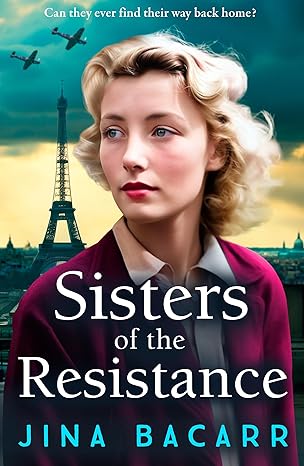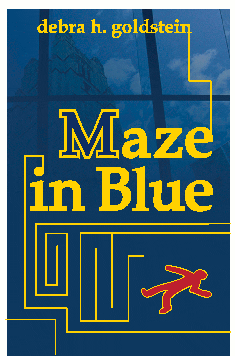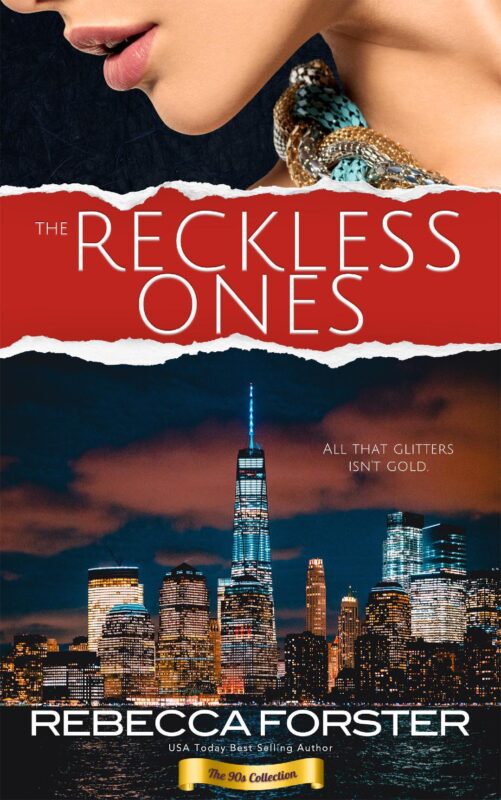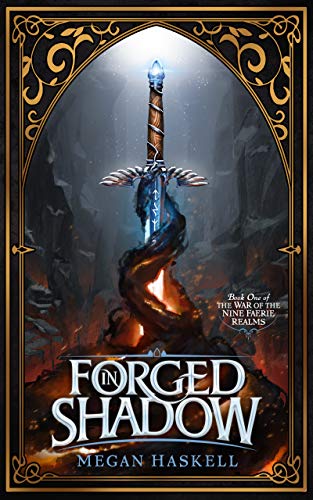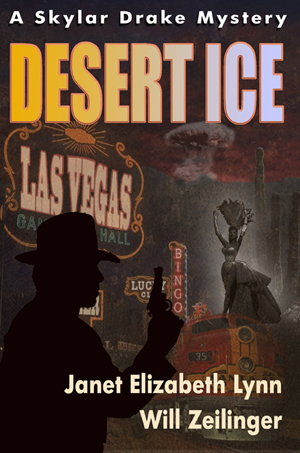How to Cure Writing Avoidance
May 28, 2009 by A Slice of Orange in category ArchivesThis Memorial Day weekend should have been very relaxing for me. I was off from my day job, and I could spend the day writing if I wanted to. So that’s what I tried to do. However, instead of popping out ten or twenty pages today, I found myself practicing Writing Avoidance.
It wasn’t a severe case of Writing Avoidance. No, the symptoms of that are the sudden need to clean out the refrigerator, basement or attic. I was only suffering from stationary Writing Avoidance, where I remained in my desk chair but found myself doing things other than writing.
For example, I would write a sentence or two, then check my email. Then come back and write a couple more sentences, then check my Twitter. Write a couple more sentences and start surfing the web for American Idol interviews. Change a couple of sentences, then realize there is a Bones marathon on, so maybe I should check out a couple of episodes (even though I own all of them on DVD).
This, dear readers, is Writing Avoidance.
I knew something was bugging me today, but I couldn’t put my finger on it. And because I couldn’t put my finger on it, the doubts crept in. I am on deadline with a book. Will I finish it in time? The editor recently read my first few chapters to better design the cover copy, and it was a nail-biter while she was reading it. But she gave me the okay to keep going. I should be over the moon, right? But the doubts had already sunk their claws deep into my psyche.
The market is tight. What if they don’t like the book?
What if they want me to rewrite the book?
I can’t seem to get those first chapters right. Why is that? Is the magic gone?
This book seems harder to write than all the others. Maybe I’m losing my touch.
Does any of this sound familiar?
Writing Avoidance or not, I needed to get pages written today. My deadline looms before me, and I pride myself on turning in my manuscripts on time. But how to get past this funk? How to convince my muse to stop sulking and get to work?
The best cure for this is to call another writer.
So I did just that, called my friend Susan Meier, who talked me off the ledge and reminded me of all the important answers to those questions.
The market is tight. What if they don’t like the book?
The editor already read it. She likes what you’re doing. Next question.
What if they want me to rewrite the book?
See #1. Also remind yourself that this is your twelfth book for them, and your last book required minimum revisions.
I can’t seem to get those first chapters right. Why is that? Is the magic gone?
This is your process. You do this with every book. You hammer at those first chapters, looking for the story, and then when you find it…ZOOM! The book spills onto the page at warp speed.
This book seems harder to write than all the others. Maybe I’m losing my touch.
Every book is harder than the last because you grow as an author with each one. If it were easy, everyone would do it. You’re not losing your touch; you’re just experiencing growing pains.
Only another writer could understand the frustration of Writing Avoidance, especially one who is familiar with your patricular process. It’s not just that the work is not getting done; it’s also that there is something interfering with your creativity. However, once you understand what is bugging you (such as, say, tension from feeling overwhelmed), you can work through it and get on with business.
This is why writers need other writers. Sometimes there is no one else in the world who could possibly understand. And it’s amazing how ten minutes on the phone with another writer can do more to cure your Writing Avoidance than an hour talking to anyone else.
A Fantasy Life
May 27, 2009 by A Slice of Orange in category A Fantasy Life by Janet Cornelow tagged as Janet Cornelow, Janet Quinn
By Janet Quinn Cornelow
I went to see the new Star Trek movie. It was absolutely wonderful and I’m ready for the next one.
Star Trek of course is science fiction and going back and creating a story that came before means that there is a great deal of history that has accumulated over the years that needs to be followed. Taking an existing world and doing a prequel is always a challenge. The writer has to look at the accumulation of facts and make sure that the story follows those facts. With Star Trek, there is a great store of facts. After forty years, just about every aspect of life has been covered.
That, however, can be limiting as to what the writers want to do with the prequel. Do they want to stay with the type of stories from the original series? How can they make changes? Do they want to tell stories that won’t fit with what happened before? What if they want to put in an illicit love affair? What if they want to kill off a character that hadn’t died before?
This is where the fantasy comes in. Throw in time travel and you can change the timeline and how the characters act. The writers can now change the relationship between characters and make it something it wasn’t before.
That is the one thing a writer always has to think about when writing time travel. If she moves someone backward in time, one little change made by that character can change the entire time line. The results shift and a new ending can be written.
Also, they could bring back Leonard Nimoy as the older Mr. Spock.
The “Final Four” of Everything American
May 24, 2009 by A Slice of Orange in category Archives tagged as Best American Romances, Best Romances, Bracketology, Final Four
The Bracketology concept is simply taking what we see every year with the NCAA Basketball playoffs: selecting the top 32 teams & pairing them against each other to get to Sweet Sixteen, the Elite Eight, the Final Four and then the two top players’ final match to declare a winner–and applying it to things other than basketball. Bracketology is a great decision-making tool, a fund of entertaining argument (you may recall in Diner, the pitting of Sinatra Vs Mathis for who offered the best “music to make-out to,” clearly a Bracketology moment) and it’s a great way to clarify your own thinking.
Check out p.114 to see where the world of American Romance Novel’s square off. I tried to capture samples from what I saw as significant sub-genres (romantic comedies, futuristic, inspirational, time-travel, multi-cultural, etc.) If you don’t like the choices and didn’t help out, then you have only yourself to blame!
This book takes the Bracketology concept further, to 150 different segments. Check out categories like Movie Gunfights, Lousy Husbands, Celebrity Mugshots, First Ladies, Untimely Deaths. It’s a great compilation from some impressive experts: Roz Chast, Manohla Dargis, Mary Matalin, Henry Beard and Christopher Cerf, A.O. Scott, and of course me! It’s guaranteed to make you think, disagree, and want to use the method to build your own version. There’s a blank sample to fill in in the book. But also, the publisher, Simon & Schuster, has created a fabulous site. You can amend the existing brackets or make you own–which are posted and can be send to friends and foes alike.
Check it out–you’ll never think about your preferences in the same way again!
Enjoy!
Isabel Swift
my blog
Advice to Myself as a Newbie Author
May 22, 2009 by A Slice of Orange in category Advice to Myself as a Newbie Author by Shauna Roberts tagged as Advice to Myself as a Newbie Author, Jill Marie Landisby Shauna Roberts
http://ShaunaRoberts.blogspot.com
Today’s Guest: Jill Marie Landis
Jill Marie Landis is the author of more than twenty award-winning, best-selling novels. Her books have appeared on the New York Times’ extended list and the USA Today list. She has been an RWA Rita finalist seven times and has won a Rita, the Golden Heart, and a Golden Medallion among other prestigious industry awards. She lives in Hawaii with her husband, and when she’s not hula dancing or sitting on the beach, she’s writing. Her latest release, a single-title Western historical romance, The Accidental Lawman (Steeple Hill), will be released on May 28th.
If you could travel back in time to before you were first published, what advice would you give yourself?
 As a firm believer that I’m always in my right place, I tend to live in the moment and don’t look back, so it’s hard to picture myself giving myself advice on how to do things differently, but hopefully the following will help someone else along the sometimes smooth and sometimes rocky road of publishing.
As a firm believer that I’m always in my right place, I tend to live in the moment and don’t look back, so it’s hard to picture myself giving myself advice on how to do things differently, but hopefully the following will help someone else along the sometimes smooth and sometimes rocky road of publishing.
1. Write faster. Because I was blessed enough to make great advances from the beginning, I was content (notice I say content and not lazy) enough to write only one single-title novel a year. If I had it to do over again, I would write two books a year in two different subgenres (for example, one historical and one contemporary) or one single title and a category, perhaps. After twenty-five years in the business I’ve seen a whole lot of authors come and go and have noticed that it’s not always quality that promotes staying power, but stamina and quantity. The perfect combination is quality and quantity. Making a name for yourself and keeping it out there in front of readers is what counts.
2. If it’s not broke, don’t fix it. Stick to what is working if your books are selling. I wrote eight Western historical romances and they were making all the best-seller lists. After six of them, I wanted to do something different. My editor wanted two more Westerns. I wrote them and thought I’d throw up if I had to hang one more gun on one more cowboy. The books did really, really well and the publisher promotion was great. Foolishly, I ventured into other historical settings, New Orleans and the Caribbean, Africa, pioneers in Kentucky. Sales didn’t slip but they didn’t skyrocket and treading water in the publishing business is not a good thing. Readers want what they have come to expect from you—over and over again. My advice—give it to them. If you get bored, change your name when you try something new.
3. Know when to make the big moves and make them quickly. A very well-known big name author told me very, very early on, “Leave your first publisher when you are on top. They will never see you as anyone but the little author they found.†Me? I was into loyalty. Isn’t that worth something? Isn’t loyalty an honorable trait? To a point. I stayed at my first publishing house for fifteen years. I was well paid. I was fat and happy but never slotted at the top of their list. I watched them “steal†other romance authors from other houses and place them ahead of me. I should have let myself be “stolen†and wooed by another house before it was too late.
4. Know when to change agents. For me, changing agents is the most gut-wrenching, hardest decision I’ve ever had to make in publishing. If you are thinking it’s time to change, it’s probably past time.
5. Learn the business. Face facts. You can do a lot to promote your work, but the bottom line is publisher backing and support. The product is what’s most important. Write the best book each and every time you can so that when your work is promoted and slotted and out in quantities where readers can find it, be sure you are giving them the best you’ve got.
 This next piece of advice is something I’ve always tried to remember. This is for the newbies out there reading this blog:
This next piece of advice is something I’ve always tried to remember. This is for the newbies out there reading this blog:
6. Network, network, network. Make writer friends. Get to know agents and editors, even if they are not ever going to be your agent or editor. The more people you know and who know you personally, the better off you are in the business. Make friends, not enemies. They’ll guard your back and help when you need advice, encouragement, and a shoulder to cry on. True friends will celebrate your successes. Be happy for your fellow writers and not jealous of them. We have an old friend who is an actor on a long-running soap opera. His favorite quote is one to live by: “Be nice to everyone on your way up. You’ll see them again on your way down.â€
✥✥✥✥✥
To learn more about Jill Marie Landis, please visit her Website at http://www.jillmarielandis.com or her blog at http://www.jillmarielandis.com/blog. You can preorder The Accidental Lawman and purchase her July 2008 book, Homecoming (Steeple Hill), at your local bookstore as well as at online bookstores. Click on your favorite bookstore below to go directly to the purchase page.
The Accidental Lawman: Amazon.com, Barnes & Noble, Borders
Homecoming: Amazon.com, Barnes & Noble
Is it Romantic?
May 20, 2009 by Marianne H. Donley in category Archives tagged as Member At Large, Monica Stonerby
Monica Stoner, Member at Large
We throw around titles of the most romantic books, plays, movies, stories. Gone with the Wind is a major favorite, along with the tales of King Arthur’s round knights. Mustn’t forget some of the musicals – My Fair Lady, Camelot (Arthur again) and of course Phantom of the Opera. I find Weber’s music helps words come through my fingers and often ignore the words for the tunes.
Recently I listened to Phantom when I wasn’t writing and could pay attention to the words. This is romantic? We have a lovely young woman terrorized by a mysterious man yet when she tries to tell her story, she’s told he doesn’t exist. Even the man who will become the love of her life insists she doesn’t know what she’s talking about. According to him she needs to forget her fantasies and let him make all her decisions. Supposedly they live happily ever after but one wonders how often Christine is encouraged to ignore her own thoughts and blindly follow the man’s.
Camelot, that classic tale of love is actually about an inconvenient marriage and a woman who can’t keep her word. Yes, Lancelot betrays his king but Guinevere is the woman who made an advantageous marriage then got restless when someone cuter came along. This is romance?
Gone With the Wind doesn’t do much for me as romance, though as a tale of living through a social upheaval it’s marvelous. I’ve never found Scarlet to be a sympathetic character.
How much of what was once thought extremely romantic can stand up to current thinking? For years the pattern of popular romance was a domineering male and the pure, honest, but plucky virgin. Of course the male was a prince or knight or lord of the manor, later a captain of industry. Quick – how many of those books can you remember as individual stories instead of one in a group of many? Right, same here. But how many of the books that stay with us are about the domineering male who gets taken down a peg or ten by the plucky heroine?
My most romantic book? Probably Mary Stewart’s “My Brother Michael.” Without deep soulful kisses or heavy breathing clinches, at the end of the book there is no doubt these people have made a commitment to each other. But Sharon and Tom Curtis’ “Lightning that Lingers” is right up there. Anyone else? I could use a good classic romantic read right about now.
Monica K Stoner
tsent@ix.netcom.com
Affiliate Links
A Slice of Orange is an affiliate with some of the booksellers listed on this website, including Barnes & Nobel, Books A Million, iBooks, Kobo, and Smashwords. This means A Slice of Orange may earn a small advertising fee from sales made through the links used on this website. There are reminders of these affiliate links on the pages for individual books.
Search A Slice of Orange
Find a Column
Archives
Featured Books
SISTERS OF THE RESISTANCE
Now they must choose – save themselves, or fight the Nazis
More info →THE RECKLESS ONES: The 90s Collection
All that glitters isn't gold.
More info →FORGED IN SHADOW
In the chaos of war, not all heroes shine. Some must rise from shadows to claim the light.
More info →DESERT ICE
Sin City in 1955, where the women are beautiful and almost everything is legal-
More info →Newsletter
Contributing Authors
Search A Slice of Orange
Find a Column
Archives
Authors in the Bookstore
- A. E. Decker
- A. J. Scudiere
- A.J. Sidransky
- Abby Collette
- Alanna Lucus
- Albert Marrin
- Alice Duncan
- Alina K. Field
- Alison Green Myers
- Andi Lawrencovna
- Andrew C Raiford
- Angela Pryce
- Aviva Vaughn
- Barbara Ankrum
- Bethlehem Writers Group, LLC
- Carol L. Wright
- Celeste Barclay
- Christina Alexandra
- Christopher D. Ochs
- Claire Davon
- Claire Naden
- Courtnee Turner Hoyle
- Courtney Annicchiarico
- D. Lieber
- Daniel V. Meier Jr.
- Debra Dixon
- Debra H. Goldstein
- Debra Holland
- Dee Ann Palmer
- Denise M. Colby
- Diane Benefiel
- Diane Sismour
- Dianna Sinovic
- DT Krippene
- E.B. Dawson
- Emilie Dallaire
- Emily Brightwell
- Emily PW Murphy
- Fae Rowen
- Faith L. Justice
- Frances Amati
- Geralyn Corcillo
- Glynnis Campbell
- Greg Jolley
- H. O. Charles
- Jaclyn Roché
- Jacqueline Diamond
- Janet Lynn and Will Zeilinger
- Jaya Mehta
- Jeff Baird
- Jenna Barwin
- Jenne Kern
- Jennifer D. Bokal
- Jennifer Lyon
- Jerome W. McFadden
- Jill Piscitello
- Jina Bacarr
- Jo A. Hiestand
- Jodi Bogert
- Jolina Petersheim
- Jonathan Maberry
- Joy Allyson
- Judy Duarte
- Justin Murphy
- Justine Davis
- Kat Martin
- Kidd Wadsworth
- Kitty Bucholtz
- Kristy Tate
- Larry Deibert
- Larry Hamilton
- Laura Drake
- Laurie Stevens
- Leslie Knowles
- Li-Ying Lundquist
- Linda Carroll-Bradd
- Linda Lappin
- Linda McLaughlin
- Linda O. Johnston
- Lisa Preston
- Lolo Paige
- Loran Holt
- Lyssa Kay Adams
- Madeline Ash
- Margarita Engle
- Marguerite Quantaine
- Marianne H. Donley
- Mary Castillo
- Maureen Klovers
- Megan Haskell
- Melanie Waterbury
- Melisa Rivero
- Melissa Chambers
- Melodie Winawer
- Meriam Wilhelm
- Mikel J. Wilson
- Mindy Neff
- Monica McCabe
- Nancy Brashear
- Neetu Malik
- Nikki Prince
- Once Upon Anthologies
- Paula Gail Benson
- Penny Reid
- Peter Barbour
- Priscilla Oliveras
- R. H. Kohno
- Rachel Hailey
- Ralph Hieb
- Ramcy Diek
- Ransom Stephens
- Rebecca Forster
- Renae Wrich
- Roxy Matthews
- Ryder Hunte Clancy
- Sally Paradysz
- Sheila Colón-Bagley
- Simone de Muñoz
- Sophie Barnes
- Susan Lynn Meyer
- Susan Squires
- T. D. Fox
- Tara C. Allred
- Tara Lain
- Tari Lynn Jewett
- Terri Osburn
- Tracy Reed
- Vera Jane Cook
- Vicki Crum
- Writing Something Romantic
Affiliate Links
A Slice of Orange is an affiliate with some of the booksellers listed on this website, including Barnes & Nobel, Books A Million, iBooks, Kobo, and Smashwords. This means A Slice of Orange may earn a small advertising fee from sales made through the links used on this website. There are reminders of these affiliate links on the pages for individual books.


